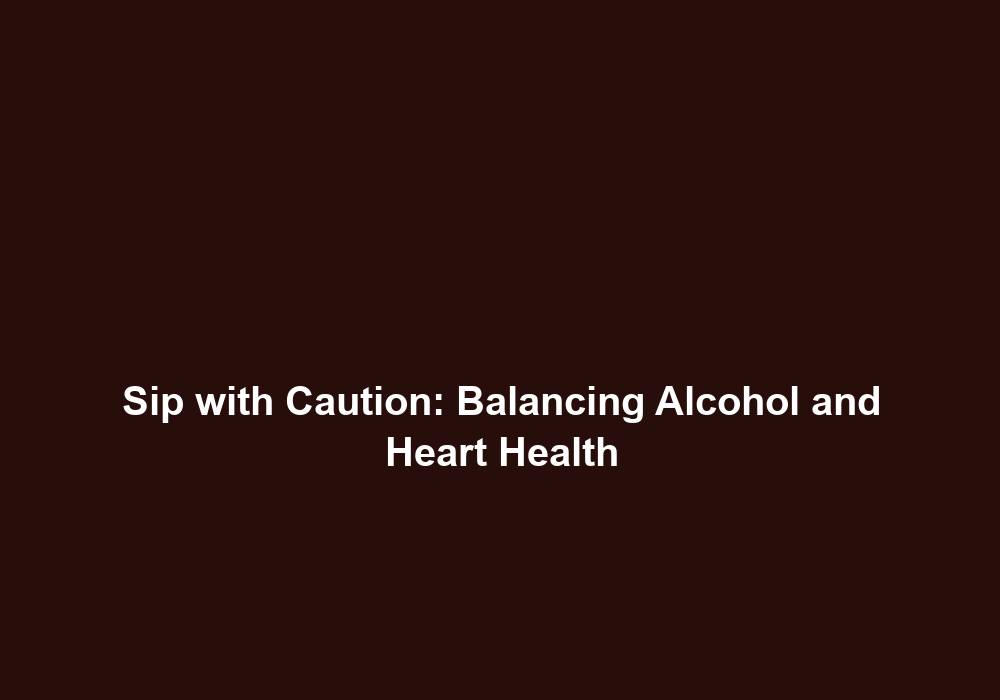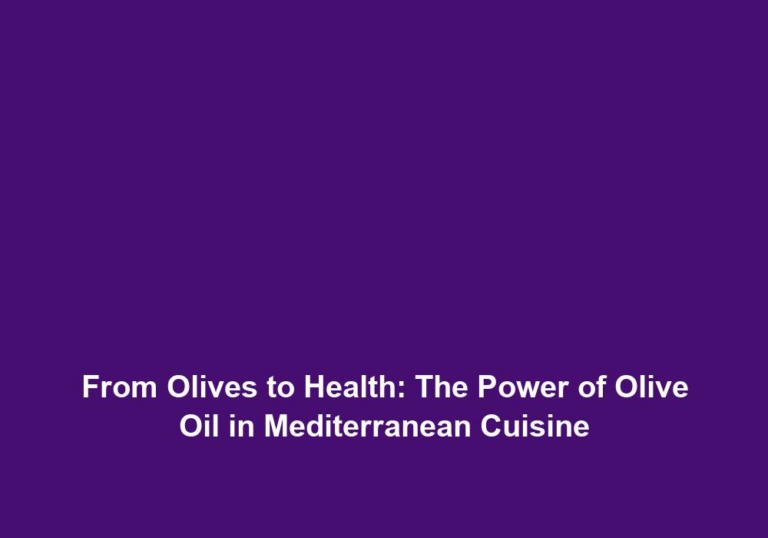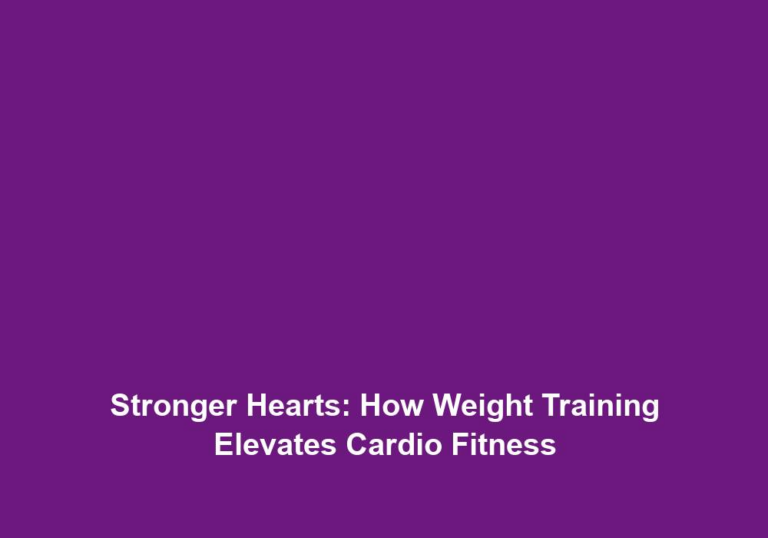Sip with Caution: Balancing Alcohol and Heart Health
Alcohol consumption is a common part of socializing and relaxation for many adults. However, it is important to be mindful of the potential impacts of alcohol on our overall health, particularly when it comes to heart health. This article aims to provide an informed perspective on the delicate balance between alcohol consumption and heart health.
Understanding Alcohol and Its Effects
Alcohol, chemically known as ethanol, is a psychoactive substance that affects the central nervous system, creating feelings of relaxation and lowering inhibitions. When consumed, alcohol is rapidly absorbed into the bloodstream through the stomach and small intestine. The liver then metabolizes alcohol, breaking it down into byproducts that can be eliminated from the body.
Alcohol can have both positive and negative effects on the cardiovascular system, depending on the amount and frequency of consumption.
Moderate Alcohol Consumption and Heart Health
Moderate alcohol consumption is often defined as up to one drink per day for women and up to two drinks per day for men. Research suggests that moderate alcohol intake may have some cardiovascular benefits, such as:
-
Increased HDL Cholesterol: High-density lipoprotein (HDL) cholesterol is often referred to as good cholesterol, as it helps remove excess low-density lipoprotein (LDL) cholesterol from the arteries. Moderate alcohol consumption has been shown to increase HDL levels, which may lower the risk of heart disease.
-
Reduced Blood Clotting: Alcohol can act as a natural blood thinner, reducing the risk of blood clot formation. Blood clots can block blood vessels and lead to serious cardiovascular events such as heart attacks and strokes.
-
Improved Insulin Sensitivity: Moderate alcohol consumption has been associated with improved insulin sensitivity, potentially reducing the risk of developing type 2 diabetes. Diabetes is a known risk factor for heart disease.
-
Anti-inflammatory Effects: Certain components found in alcoholic beverages, such as resveratrol in red wine, have anti-inflammatory properties. Chronic inflammation is linked to the development and progression of heart disease.
While moderate alcohol consumption can have these potential benefits, it is important to note that individual responses to alcohol can vary. Factors such as genetics, overall health, and lifestyle choices can influence how alcohol affects the body.
The Dark Side of Alcohol
While moderate alcohol consumption may offer some cardiovascular benefits, excessive or chronic drinking can have detrimental effects on heart health. It is crucial to understand the potential risks associated with excessive alcohol intake, including:
-
High Blood Pressure: Alcohol can increase blood pressure levels, putting additional strain on the heart and blood vessels. Chronic high blood pressure can damage arteries, leading to a higher risk of heart disease and other cardiovascular conditions.
-
Arrhythmias: Excessive alcohol consumption can disrupt the heart’s normal rhythm and lead to arrhythmias, irregular heartbeats that can be potentially life-threatening. Alcohol-induced arrhythmias may increase the risk of stroke and sudden cardiac death.
-
Cardiomyopathy: Long-term heavy drinking can lead to the development of alcoholic cardiomyopathy, a condition characterized by weakened heart muscles. This can impair the heart’s ability to pump blood effectively and increase the risk of heart failure.
-
Increased Triglyceride Levels: Alcohol is high in calories and can contribute to weight gain. Excessive alcohol consumption can also raise triglyceride levels, increasing the risk of atherosclerosis and heart disease.
It is important to note that the negative effects of alcohol on heart health are more pronounced with excessive or chronic drinking. These risks can be mitigated by practicing moderation and making informed choices about alcohol consumption.
Striking a Balance: Tips for Heart-Healthy Drinking
If you choose to consume alcohol, it is important to strike a balance that supports heart health while minimizing potential risks. Here are some practical tips to keep in mind:
-
Know Your Limits: Understand what constitutes moderate alcohol consumption based on your gender and overall health. Stick to the recommended limits to maximize potential benefits and minimize risks. It is also important to be aware of any personal or family history of alcohol-related issues that may affect your tolerance and ability to consume alcohol safely.
-
Choose Wisely: Opt for alcoholic beverages that are lower in calories and have potential heart-healthy compounds. Red wine, for example, contains resveratrol, which has been shown to have cardiovascular benefits. Avoid sugary mixed drinks and excessive amounts of hard liquor, as these can contribute to weight gain and other health issues.
-
Stay Hydrated: Make sure to drink plenty of water alongside alcohol consumption to stay hydrated. Alcohol can dehydrate the body, and dehydration can contribute to cardiovascular issues. Drinking water can also help pace your alcohol consumption and prevent excessive intake.
-
Take Breaks: Incorporate alcohol-free days into your week to give your body time to recover and reduce the risk of developing a dependency on alcohol. This can also help maintain a healthy balance and prevent excessive drinking.
-
Avoid Binge Drinking: Excessive alcohol consumption in a short period, known as binge drinking, can have severe health consequences. Pace your drinking and spread it out over a more extended period. This allows your body to process the alcohol more effectively and reduces the strain on your cardiovascular system.
-
Consider Alternatives: If you prefer not to drink alcohol, there are many alcohol-free alternatives available on the market. These options can provide a similar sensory experience without the potential health risks associated with alcohol consumption. Experiment with mocktails or non-alcoholic beers and wines to find alternatives that suit your taste preferences.
-
Seek Professional Advice: If you have a history of heart disease or other cardiovascular conditions, it is essential to consult with a healthcare professional before making any decisions regarding alcohol consumption. They can provide personalized advice based on your unique health situation and help you make informed choices.
Conclusion
When it comes to alcohol consumption and heart health, moderation is key. While moderate alcohol consumption may offer some cardiovascular benefits, excessive drinking can result in severe heart-related issues. Understanding your limits, choosing wisely, and listening to your body are essential for maintaining a healthy balance. Remember, it is always wise to consult with a healthcare professional for personalized advice regarding alcohol and its potential impacts on your heart health. So, sip with caution and make heart-healthy choices.







